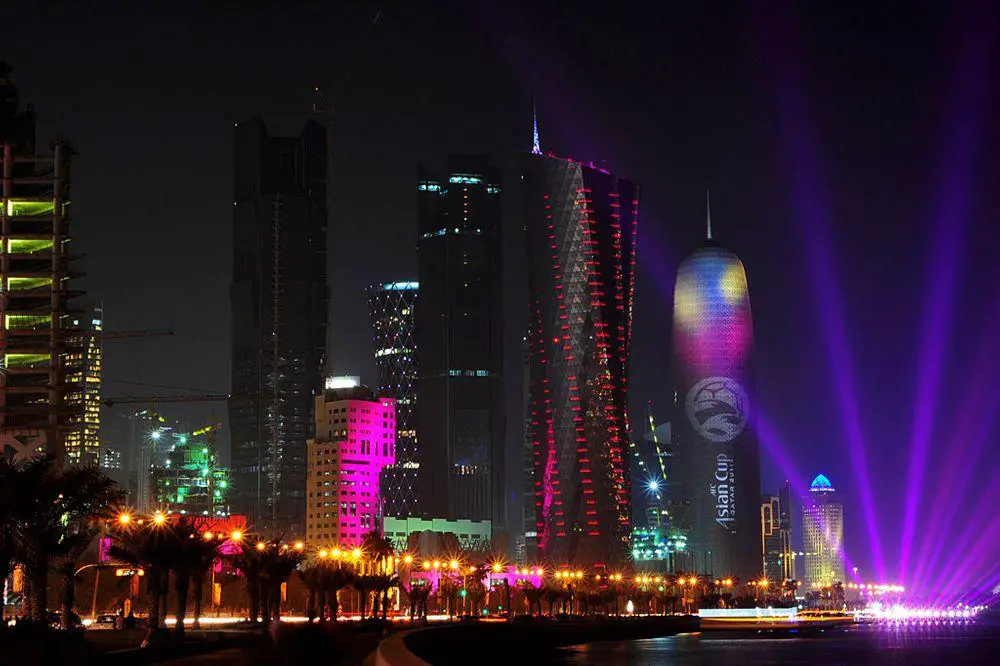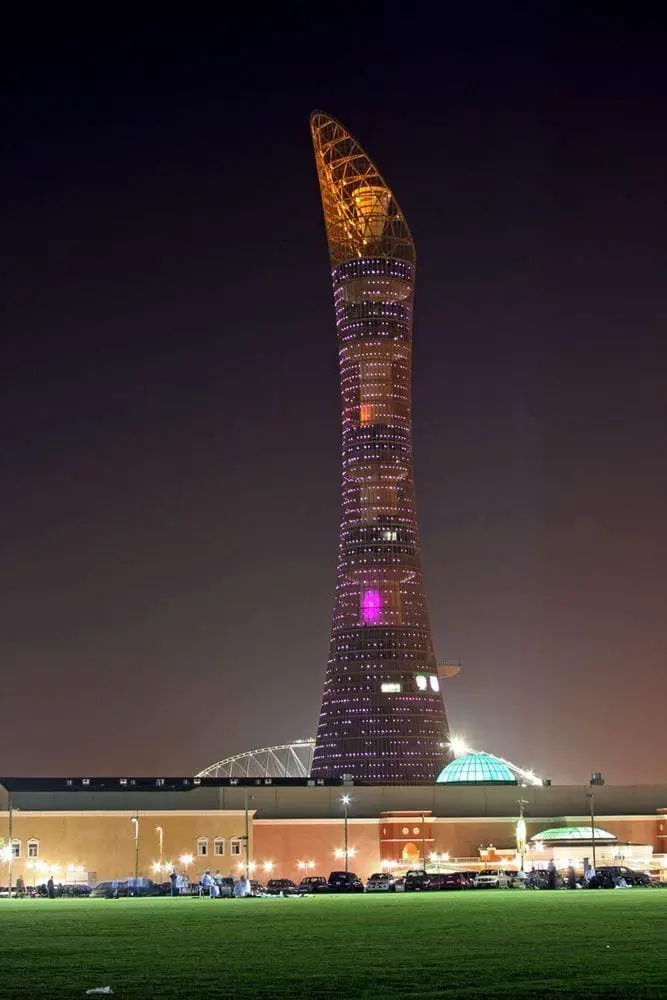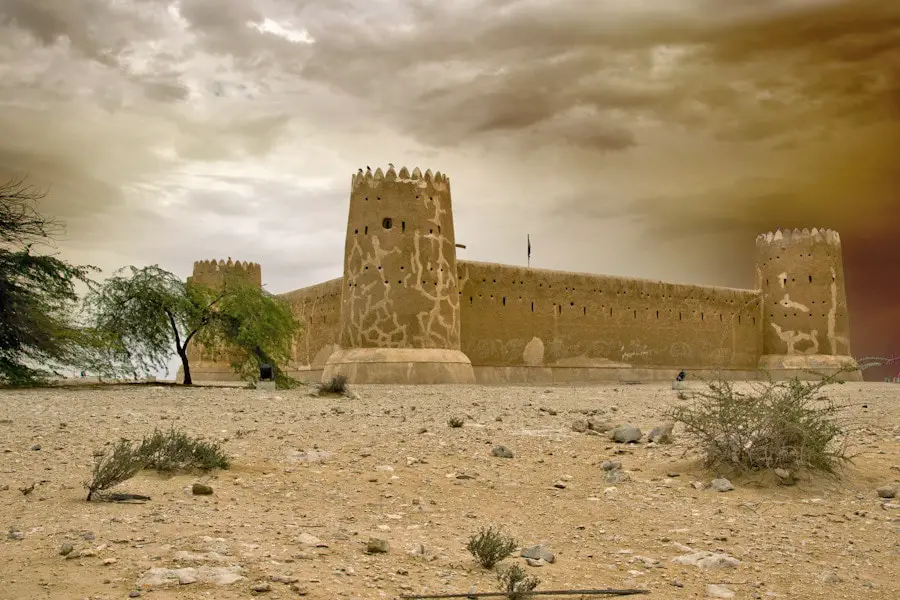Wondermondo 🢖 World 🢖 Wonders of Asia 🢖 Wonders of Qatar
Territory
Wonders of Qatar

 Highlights
Highlights
This comparatively small, flat country, for the most part, is covered with desert and one would expect that there is not much to see.
Nevertheless, humans have lived here for millennia and the desert environment has helped to preserve ancient settlements and buildings. Most of these settlements are fairly recent – from the 18th – 19th centuries, but there are also older ones. Qatar has many forts – witnesses of rough times in the late 19th – early 20th century.
Present times have brought unseen prosperity to the country and Qatar is investing in exciting, modern architecture and art.
Map with the described wonders of Qatar
Please add some markers to your posts before using this shortcode.
 Top 16 wonders of Qatar
Top 16 wonders of Qatar
Archaeological wonders
Al Jassasiya petroglyphs
Madinat ash Shamal
Group of some 900 unusual petroglyphs. Most are geometrical patterns, animals, boats, but there are also unusual ones, such as smaller cupules around a larger one and other groups of cupules that, possibly, were used for games. Petroglyphs were created in the 18th – 19th centuries.
Jebel Freiha petroglyphs
Madinat ash Shamal
Group of petroglyphs on a limestone cliff. Most petroglyphs are cupules that often are arranged in groups, forming rows and rosette shaped patterns.
Al Wsel
Al Daayen
Ruins of a prehistoric settlement that included residential buildings, towers, cemetery. An interesting feature is groups of limestone slabs. These rocks are set upright and are arranged in circles. The settlement was inhabited in the 7th – 1st century BC, although it is possible that the time span is longer.
Architecture wonders
Aspire Tower
Doha
300 m tall skyscraper (37 floors) with unusual, hyperboloid form. Tower housed enormous flame during the 2006 Asian Games and now serves as a hotel.
Museum of Islamic Art in Doha
Doha
Museum building with unique architecture, built on water in 2008 after the design of I.M.Pei. The building contains a huge collection of Islamic art.
Al Zubarah
Madinat ash Shamal
Ruins of an abandoned city that was founded in the middle of the 18th century AD and was a rich trade city until the first decades of the 19th century. The city was enclosed with a 2.5 km long fortification wall and is one of the best-preserved examples of a trade city from this time period in the region.
Barzan Towers
Umm Salal
System of fortifications that were built to protect the water resources in this site. Towers were built in the late 19th – early 20th century.
Al Wajba Fort
Doha
Important fortification that was built in the late 18th – early 19th century and further rebuilt in 1882. Here in 1893 was defeated Ottoman Army and started the state of Qatar.
Zekreet Fort
Al Rayyan
An unusual fortification that is built among limestone hoodoos incorporating them in the structure. Fort was constructed in the 18th century AD, but construction was not completed.
East-West/West-East
Al Rayyan
Group of unusual sculptures in the middle of the desert – a row of four approximately 15 m tall steel-plated monoliths that look like installations for a sci-fi movie. The artwork was made by Richard Serra in 2014.
Al Koot Fort
Doha
Fortress in the center of Doha, built in 1927. Now it serves as a museum.
Al Thagab Fort
Madinat ash Shamal
Fortress in Northern Qatar, constructed in the 18th century. Fort has traditional architecture – it is rectangular, with towers in the corners. There are also other fortresses in the north of the country.
Al Zubara Fort
Madinat ash Shamal
A well preserved fortress that was constructed in 1938.
Al Ruwaida
Madinat ash Shamal
Ruins of a settlement, a large fort, and cemeteries as well as numerous fish traps at the coast. This place was inhabited in the 17th – 18th centuries and abandoned in the early 19th century.
Al Rubaiqa
Madinat ash Shamal
Ruins of a smaller settlement – possible site of the port where products of date palms were stored and shipped in the 18th – 19th century.
Freiha
Madinat ash Shamal
Old, ruined city. Freiha flourished in the 17th – 18th centuries and its ruins include Qal’at Freiha (fortress), ruins of mosques, and residential buildings.
 Recommended books
Recommended books
Moving to Qatar – A Rough Guide
The third edition of this rough guide for western expatriates to moving to, and settling in Qatar. Updated with new information and experiences. Contains handy links to find essential services and some guidance to set expectations and make the move as smooth as possible.
Qatar: Sand, Sea and Sky
Qatar occupies a thumb of land that extends off the Arabian Peninsula into the Persian Gulf. This nation, though small in size, represents more than a strategic geographical location-it is uniquely beautiful and culturally rich. Qatar: Sand, Sea and Sky is an overview of the country and its journey into modernity while it preserves the duality of its culture as a desert by the sea. Stunning photography pairs with informative and personal text by the wife of the most recent United States ambassador to Qatar to give Westerners traveling to Qatar on business or for World Cup preparations an inside understanding of this moderate Muslim country and the way it attempts to become modern and engaged with the world without losing its heritage.




